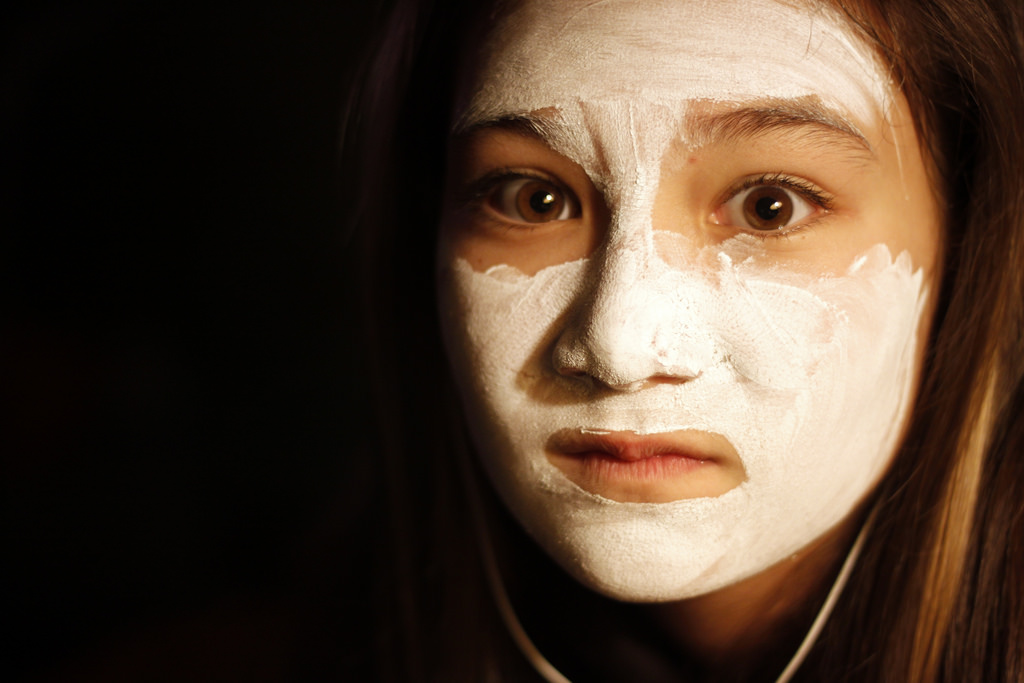Face it (haha), at any point in our lives, we always find ourselves struggling with some sort of skin care issue.
Some days, we might have perfect skin and walk down Orchard Road machiam like it’s New York, but it doesn’t take long before another problem pops up. Literally (damn those pimples).
[caption id="" align="aligncenter" width="500"] Some days, we just wanna cover everything up. Via[/caption]
Some days, we just wanna cover everything up. Via[/caption]
So it’s no surprise that most of us are privy to skin care “truths” that have been drilled into our heads ever since we hit puberty. These “truths” shape our skin care regime, some of them giving us assurance, others serving as cautionary tales. You haven’t had any chocolate in five years because everyone knows they cause they will cause you to break out. Duh.
But how accurate are these “truths”? Are they just marketing schemes passed on as urban beliefs? And the question we really want answers to -- are they really good for our skin?!
We’ve sorted out the truth from the BS and here’s what you need to know.
Truth 1: A foaming cleanser is always good.
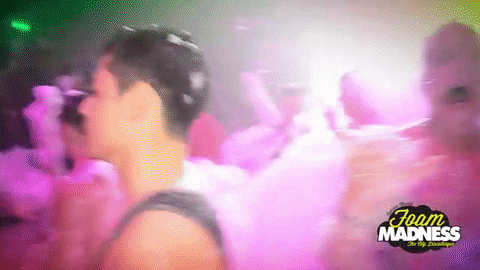 Don’t you just feel clean? Via
Don’t you just feel clean? Via
The first time you ever used a soap-free cleanser, you must have felt weird. “It doesn’t feel squeaky clean. My face still feels oily!” If a cleanser doesn’t produce a good foam no matter how hard we lather, it doesn’t work. We just don’t feel like it’s clean. Are you sure we’ve gotten rid of all the dirt?
But news flash: foaming cleansers can strip your skin of its protective barrier.
The foaming action might feel great when you’re in the shower, but you know that dry, tight sensation you feel afterwards? That’s a sign that your skin barrier, which keeps moisture in and bacteria out, has been removed.
Using foam cleansers too often can lead to dryness, itch and excess oil production, as your skin works to recover that layer of moisture. With excess oil production, you’re more prone to ache as well.
Verdict: It’s a no-no.
Truth 2: Drinking lots of water is good for your skin.
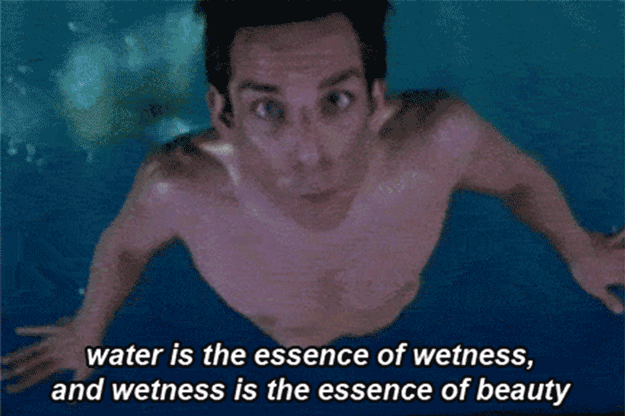 Drink a lot of water, they said... Via
Drink a lot of water, they said... Via
There’s no doubt that water is good for the body. Our mums have always told us to “drink more water lah!” when we complain about looking dull and tired. But does drinking a lot of it really make our skin look more youthful and hydrated?
Seems like that’s not entirely true. While drinking water does keep your skin from becoming dehydrated, there seems to be no evidence showing that drinking more water has extra benefits for your skin.
Still confused? Check out this water drinking experiment. Basically, drink water to keep your body healthy and hydrated, but don’t chug in hopes of looking like Fann Wong.
Verdict: Errr, we go with a yes for this one. But manage your expectations guys.
Truth 3: The higher the SPF, the better.
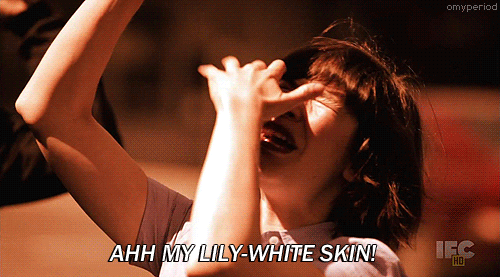 Sunscreen is God. Via
Sunscreen is God. Via
Sunscreen. The one true skin care item we all know to be good and kind and protective. You can’t really go wrong with sunscreen. But what are all the SPF (stands for Sun Protection Factor, btw) numbers for? The higher the better, right?
That’s only slightly true. Basically, it’s disproportionate -- so the higher the SPF value goes, the smaller the added protection you get. SPF50 sunscreens only shield 1% more UVB rays than SPF30 sunscreens do.
And therefore, since sunscreen with a higher SPF don’t give much more protection, so using a SPF15 or 30 sunscreen should be sufficient.
Verdict: Nope, not true.
Truth 4: Chocolate makes you breakout.
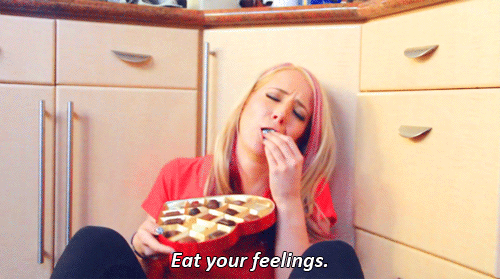 Chocolate or pimples?! Why do we have to choose?! Via
Chocolate or pimples?! Why do we have to choose?! Via
This is the one we all know of. We all heard it when we were in secondary school. If you are acne prone, you would have avoided it like the plague even after puberty. We have a love-hate relationship with chocolate. But is chocolate really the devil?
Turns out, it’s not a direct cause of breakouts. Jeng jeng. So does that mean we’ve stopped eating chocolate all this while in vain? That’s not true either. While eating chocolate doesn’t mean you are guaranteed a pimple, it contributes to a high fat/ high sugar diet, which increases sebum production – leading to acne.
See the link now? So the key here is not to avoid chocolate per se, but to maintain an adequate balance in your diet. Moderation, guys.
Verdict: N-O. Hell yeah!
Truth 5: There’s no need to use moisturiser if I have oily skin
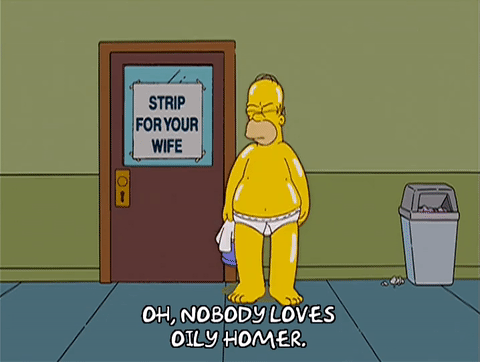 Nobody loves oily skin either. Via
Nobody loves oily skin either. Via
People with oily skin have it tough. Oily skin is tricky to deal with, and can be demoralising. So why add on to the shine right? Moisturising is only for people with dry skin.
Not true! Skin products for oily skin usually attacks the problem head on, by getting rid of oil and sebum. This means that the protective layer is being stripped away, leaving your skin overly dry. That’s when the moisturiser comes in to hydrate your skin, protecting it from the harsh products.
Not all moisturisers are heavy or greasy. You just have to look for the right product.
Verdict: We say it’s high time you break out the moisturisers.
Truth 6: Toothpaste is a quick way to get rid of a pimple.
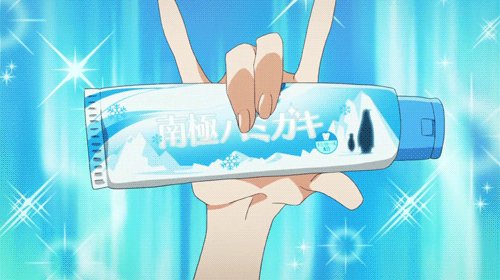 The all powerful… toothpaste? Via
The all powerful… toothpaste? Via
This is a weird one. Many of us have heard of it, some of us might even have tried it before, but don’t really question how odd it really is. Toothpaste? On a pimple??
The deal with using toothpaste on pimples is that it contains certain ingredients that cause pimples to dry out. So apparently, when desperate times call for desperate measures, we turn to using toothpaste.
But experts advise against doing so. While it seems that toothpaste does dry out pimples, what it really does is cause irritation and peeling. And with so many types of toothpaste out there, it’s easy to over-dry, or even burn your skin -- leaving behind marks. Nuh-uh.
Verdict: Toothpaste is for teeth. Pimple cream is for pimple. You don’t use toothpaste on pimple just like how you wouldn’t use pimple cream on teeth. Geddit?
Truth 7: Facial sessions are bad for your skin
 Err... should I be doing it? Via
Err... should I be doing it? Via
Going for facial sessions is sort of a cult activity, but you might’ve heard whispers that they don’t really do any good for your skin. We get our skin prodded and picked at, it can be painful and sometimes we even get breakouts right after facial sessions -- it’s no wonder why homemade remedies are all the rage now.
So are facials really good or bad for our skin?!
Here’s the low-down. Facials are bad for your skin only if your beautician fails to correctly identify your skin type and select a facial treatment suitable for you.
With professional advice, regular facials can make up a good skincare routine, deeply cleansing and stimulating your skin on a regular basis to keep it in a good state. It’s important to look for a skilled beautician who customises treatments to your skin type -- saving you pain and the trouble of using home remedies to salvage your skin problems.
Verdict: Not necessarily! It doesn’t have to hurt all the time.
Got a stubborn skin problem that doesn’t seem to go away no matter what you’ve tried? We say skip the unorthodox (and likely harmful) home treatments -- try a free trial and have New York Skin Solutions review your problems. Their customised treatments might help you attain smoother, clearer and glowing skin after each treatment session.
Top image from Cass Chin
This sponsored post helps Mothership's writers afford to keep their skin healthy and youthful looking.
If you like what you read, follow us on Facebook and Twitter to get the latest updates.
If you like what you read, follow us on Facebook, Instagram, Twitter and Telegram to get the latest updates.
